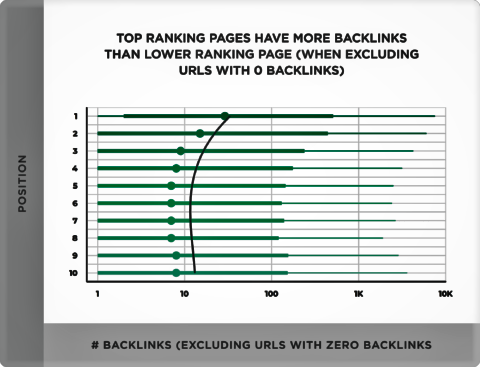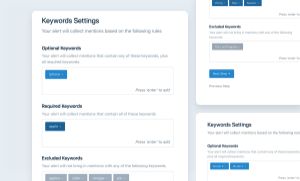This is a complete off-page SEO guideline for off-page Optimization in 2022.
In this guide, you’ll be learning how to build the type of off-site signals that Google wants to see to boost the keyword rankings, including:
- Off-page work/ Backlinks
- The Social signals
- E-A-T
- About Branded searches
- Online reputation signals
Let’s get started.
Off-Page SEO – Link Building Fundamentals
Let’s start with a quick review of the basics things. Specifically, we’re going to share what exactly off-page SEO optimization is and why it’s an important keyword ranking factor in 2022 as a guideline. You’ll be also learning the major differences between off-page SEO and on-page work.
What Is Off-Page SEO / Link Building?
The Off-page SEO covers activities done outside or off of a website, in order to increase the site’s search rankings. The most common off-page SEO actions include building the backlinks, by encouraging branded searches, and increasing engagement and shares on social media platforms with social media marketing. such as Facebook, Twitter, Instagram, etc. You can also check out the difference between SEO and SEM.
In simple words, all work is done outside of the website, which helps search engines to see your website as trustworthy and authoritative.
Why Off-Page SEO is Important?
Backlinks with other off-site signals form the foundation of Google’s algorithm. In fact, the 2020 search engine ranking factors study found a clear relationship between the total backlinks and Google rankings.

And Google has gone on the record saying that they still use PageRank.

That said: The links are the only part of off-page optimization. Google stated that they use other off-site SEO signals as well to size up your website.

For example, Google’s Quality Rater Guidelines specifically depend on a site’s off-site reputation to signal that site can be trusted.
(They call this “Reputation Research”).
“Reputation Research” includes looking at online reviews:

Bottom line: Backlinks are by far the most important off-page SEO signal. However, they’re one of many.
We’ll cover more about links and the remaining off-site factors that you definitely need to know about in the rest of this guide.
Guideline to Boost Off-Page SEO With Backlinks
When it comes to off-page SEO, backlinks are more than important.
That said:
Building backlink for off-page SEO purposes is all about quality… not quantity.
Also, the links you built to boost your rankings in the SERPs, need to be authority links from related sites/niches.
In this article, we’ll show you 4 ways to build authoritative links that are working great right now.
Be the Data Source
A few months ago we were looking at the links pointing to Moz’s keyword research guide.

And we noticed something SUPER interesting.
The vast majority of that page’s links cited a specific stat from that page (that long-tail keywords make up 70% of all searches). Here’s an example:

In simple words: people didn’t link to the page because it was a piece of “high-quality content”.
They wanted to link in order to cite a stat on the page.
That’s when it got clear to us: What if we add more stats to our client site? Would that get more people to link to us automatically?
So we decided to put this hypothesis to the test.
Moreover, we optimized it with a keyword that bloggers search for when they’re researching a topic (“ [Topic] stats ”).
As a result, within a few weeks, the page started to rank as the first page.
And a few days after that, we got the first link.
Broken Content Building
Broken content building is a twist on traditional Broken Link Building.
With most Broken Link Building campaigns, you need to look for broken links that point to a specific page. The problem you could possibly face is: finding broken pages related to your niche.
Enter: Broken Content Linking.
With Broken Content Linking, you can use Ahrefs’ Content Explorer as a broken link search engine. After that, use traditional BLB to build links to your site.
Double Down On Long-Form Content
Does publishing long-form pages magically send links your way?
Well, the answer is No.
However, it can increase the chances that other people link to you.
Additionally, when we analyzed 900+ million blog posts with BuzzSumo, we found that long-form content had 77% more links than shorter posts.

Guest Posting
Guest Blogging helps off-page SEO in various ways. It also helps to get your brand in front of an entirely new audience, which helps with the branded searches. Moreover, guest posting can lead to unlinked brand mentions. The unlinked mentions are not much powerful as a backlink. however, they still help.
Off-Page SEO Guideline: Generate Brand Signals
It’s time to cover an underrated part of the off-page SEO optimization plan:
The Branded Signals.
Google uses brand signals to find out if your site is a legit brand.
Moreover, as Google’s Eric Schmidt said: “Brands are the solution, not the problem. Brands are how you sort out the cesspool“.
Audit Your Branded Searches
Branded searches are the way many people search for a brand on Google. The search could be the exact brand name (“Rozefs”). Or your brand name + word or phrase (“Rozefs SEO Services”).
Investing in YouTube
YouTube promotion is one of the recommended ways to boost your website’s Branded searches.
Reason?
Two reasons:
Firstly, your videos will get in front of tons of people from the chosen location of the world. It will lead to more people talking about, covering, and writing about the brand online.
Second, tons of the people that see your videos, will most probably search for your brand on Google to further explore it.
The reason is that YouTube doesn’t make it possible for people to visit your site from YouTube directly.
In simple words, it’s a bit risky.
However, the good side is that, if one of your videos manages to do well, it can lead to a ton of branded searches.
Set Up Brand Tracking
This is quite easy to see how many people are talking about your brand on the news sites, blogs, and forums, and Also, to see how that pattern is getting changed over time.
There are tons of brand tracking tools (like Mention.com), BuzzSumo, etc.

Publish Research-Backed Content
The Research-backed article/content can directly help your off-page SEO signals by sending high-quality links your way.
On the other hand, Google has said that social signals don’t help rankings.

Additionally, they’re super easy in this game. Does anyone buy 20,000 Facebook likes on a Fiverr gig?
That said, social sharing can indirectly help your off-page SEO.
That’s because social shares get more eyeballs on your brand… which can lead to more branded searches and mentions.
Improve E-A-T
The E-A-T has become a super important off-page SEO factor. Especially in the medical niche.
Moreover, there is more to E-A-T than adding a bunch of author bios to your site. The reason is that Google measures the E-A-T based on signals that happen outside of your website. You will learn a lot about E-A-T in this article!
Get Brand Mentions on Authority Sites
Google’s Gary recently stated that both links AND mentions can help determine a site’s E-A-T.

So yes we can say that links are your best bet. However, it is still good to take an unlinked mention if it’s on a big enough site.
Get Links From Trusted “Seed Sites”
It turns out that Google still uses good old page rank to establish the E-A-T. However, they don’t just observe the site’s overall Domain Authority.

Get Positive Reviews Online
Google’s Quality rate checker guidelines put a ton of importance on online reviews.
It makes perfect sense: for instance if people hate your business, why would Google want to show your site to more people or less? If you run a local online business, you probably already know that reviews are huge for local SEO strategy along with on-page optimization which also consists of Technical SEO.
Additionally, the reviews also affect your site’s E-A-T in the eyes of Google.
